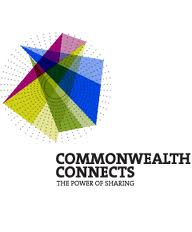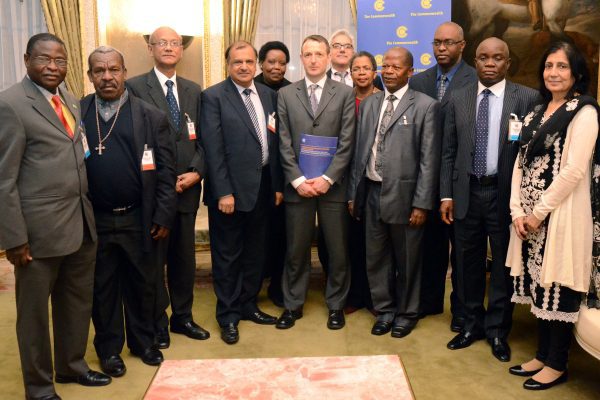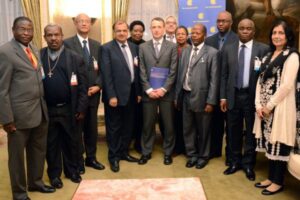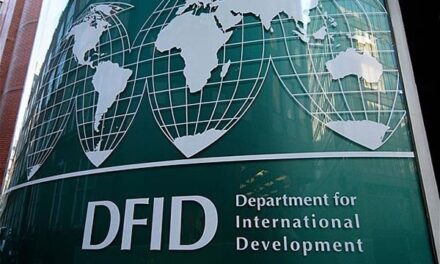Commonwealth Ministers of Education met in London in December 2012 and developed recommendations for post-2015 which are now feeding into the UN discussions and wider debates. They discussed the need to re-focus on learning without compromising efforts to secure 100% access; to align the EFA and education MDG frameworks; and to pay more attention to equity. Commonwealth ministers correspondingly recommended that three core concerns – access, quality and equity – should run through all education goals, and that EFA and MDGs should be harmonised to avoid overlaps or gaps.
Ministers proposed that three principal goals for education should be contained in the post-2015 development framework. These would be positioned in the framework in a similar place to the current education MDGs. The principal goals would be supplemented by six more detailed, subordinate goals. These would have a similar function to the current EFA goals. Targets and deadlines would focus on 2025, but options would be available for individual countries, depending on starting point, ambition and capacity.
Access
The original MDGs and EFA goals are unfinished business. For many countries, they will remain unfulfilled by 2015, even with a ‘final push’ to achieve them. Access – with learning – remains a major concern, and is encapsulated in Principal Goal 1:
Every child completes a full cycle of a minimum of 9 years of continuous, free basic education and demonstrates learning achievement consistent with national standards.
Quality
Learning is rightfully being focussed on in the debates about the post-2015 framework. This is partly because of the problem of children being in school but failing to become proficient in basic skills, and partly due to access having previously been prioritised due to the phrasing of the current MDGs.
Of course, learning – learning that is locally relevant but globally useable; attainable but ambitious; based on tried and tested methodologies but flexible enough to respond to twenty-first century challenges – is at the heart of education. But quality learning depends on quality in other domains, such as education management, participation of the community, quality assurance mechanisms, policy and strategy, and support from development partners. Hence ministers chose ‘quality’ as a core principle. The relevance aspect of quality, education’s role in individual and economic development, and the wish to set ambitious targets for all countries, is reflected in Principal Goal 2:
Post-basic education expanded strategically to meet needs for knowledge and skills related to employment and livelihoods.
Equity
Ministers were keen that development goals are not seen as relevant only to developing countries. There is no country, developed or developing, which does not need to attend to issues with access, quality, and – particularly – equity. The connections between disadvantage and lack of fulfilment of individual potential – and therefore a nation’s potential – are clear. Principal Goal 3 sets a clear target to address this:
Reduce and seek to eliminate differences in educational outcomes among learners associated with household wealth, gender, special needs, location, age and social group.
The six Sub-Goals support increased access, quality and equity:
i. Reduce and seek to eliminate early childhood under-nutrition and avoidable childhood disease, and universalise access to community based ECE/D and pre-school below age 6 years
ii. Universalise an ‘expanded vision of access’ to a full cycle of a minimum of 9 years of continuous basic education
Successful achievement of national learning outcomes in cognitive, affective and psychomotor domains for both primary and lower secondary cycles at age appropriate levels up to the age of 15 years
iii. Invest strategically in expanded and equitable access to post-basic and tertiary level education and training linked to wellbeing, livelihoods and employment and the transition to responsible adult citizenship
iv. Eliminate illiteracy and innumeracy amongst those under 50 years old
Provide education opportunities for young people and adults who have not successfully completed 9 years of basic education
v. Reduce and seek to eliminate disparities in participation in education at school level linked to wealth, location, special needs, age, gender and social group and ensure all children have equal educational opportunities and reduce gaps in measured outcomes
vi. Provide adequate infrastructure for learning according to national norms for buildings, basic services, safety, learning materials, and learning infrastructure within appropriate distances of households.
Cross-cutting themes
In order to focus efforts on the hardest to reach children – and to ensure that the challenges of environmental change are addressed by education – Commonwealth Ministers propose four cross-cutting themes to be addressed by all education goals:
a) Education in Emergencies – Conflict and disaster risk reduction integrated into national education sector plans;
b) Migration – All migrants of school-age or who are education professionals recorded in monitoring of education goals by the host country to inform policy formulation;
c) Gender – All reporting and evaluation of the development goals disaggregated by sex and analysed through a gender lens; and
d) Education for Sustainable Development – Education for sustainable development mainstreamed in all education policies, teacher and school leader preparation, and curricula.
In their meeting statement, Commonwealth Ministers of Education reaffirmed the centrality of education to all development objectives. This summary provides more details on the Ministers’ recommendations. The rationale for the recommendations can be found in this Background Paper, while this Issues Paper identifies education priority areas in the Commonwealth. We would welcome your engagement in the continuing discussions on education in the Commonwealth; send an email to education@commonwealth.int and we will sign you up to our online workspace in Commonwealth Connects.
The Commonwealth Secretariat acknowledges the contribution of Professor Keith Lewin to the Working Group.





